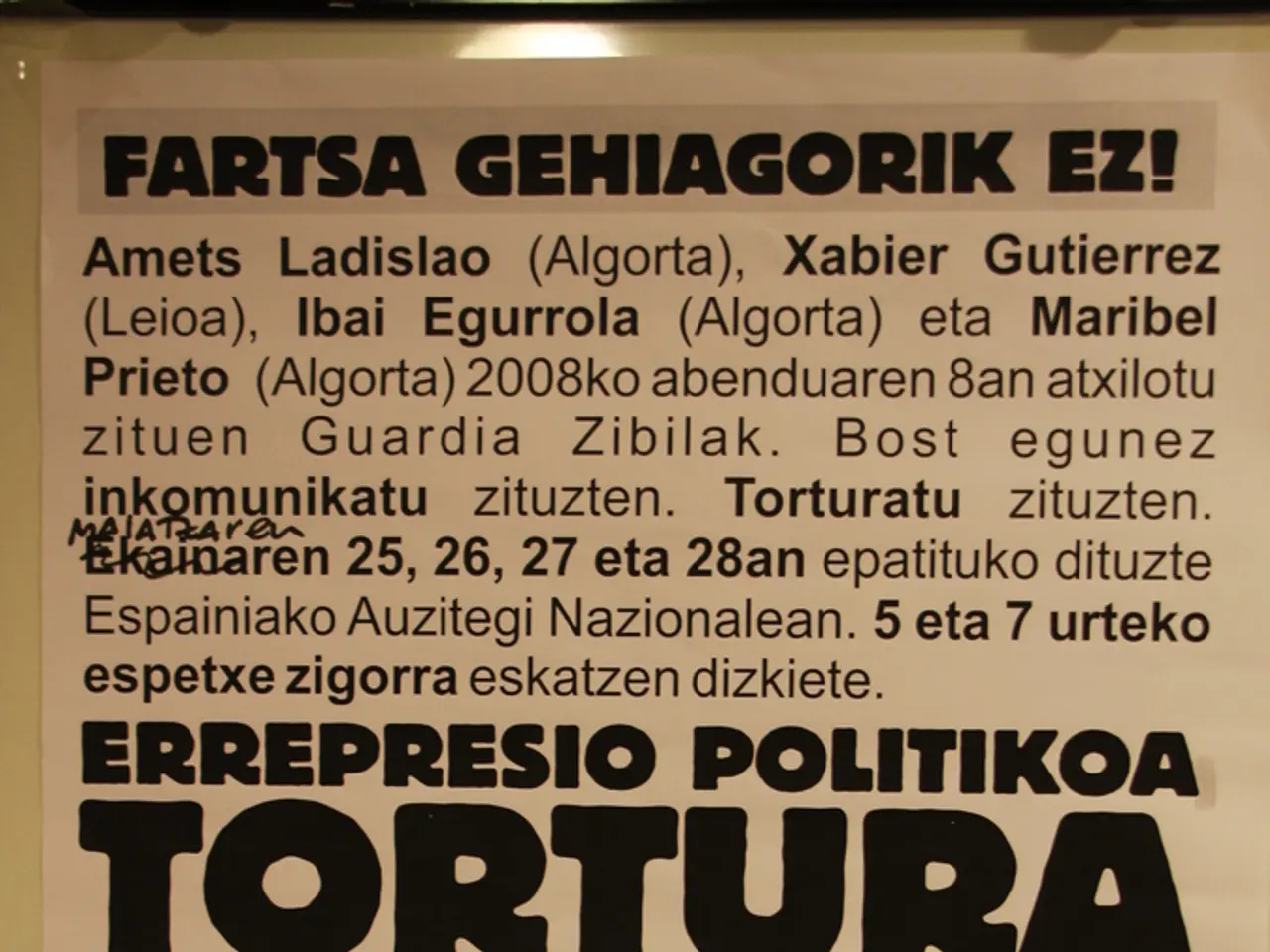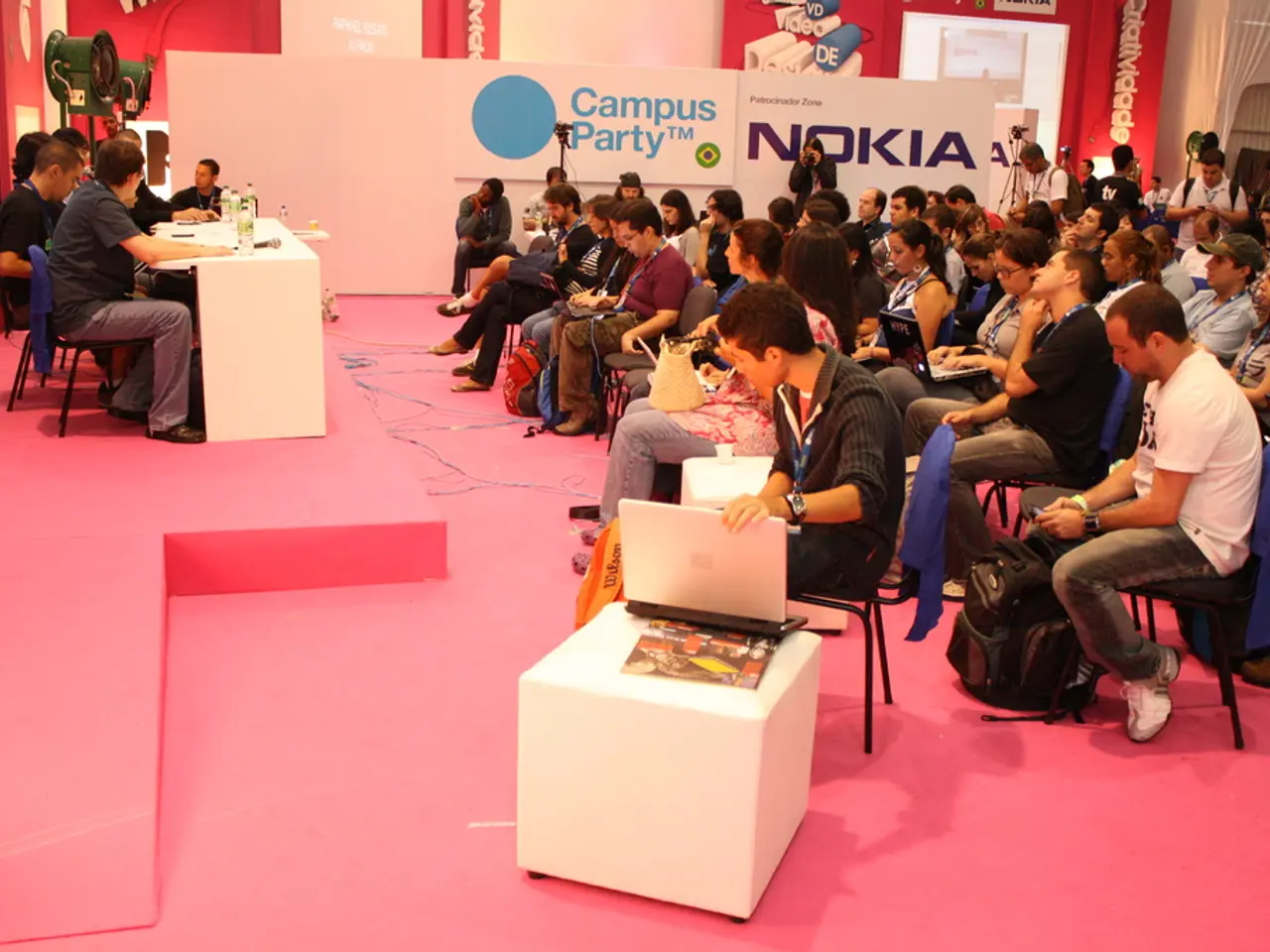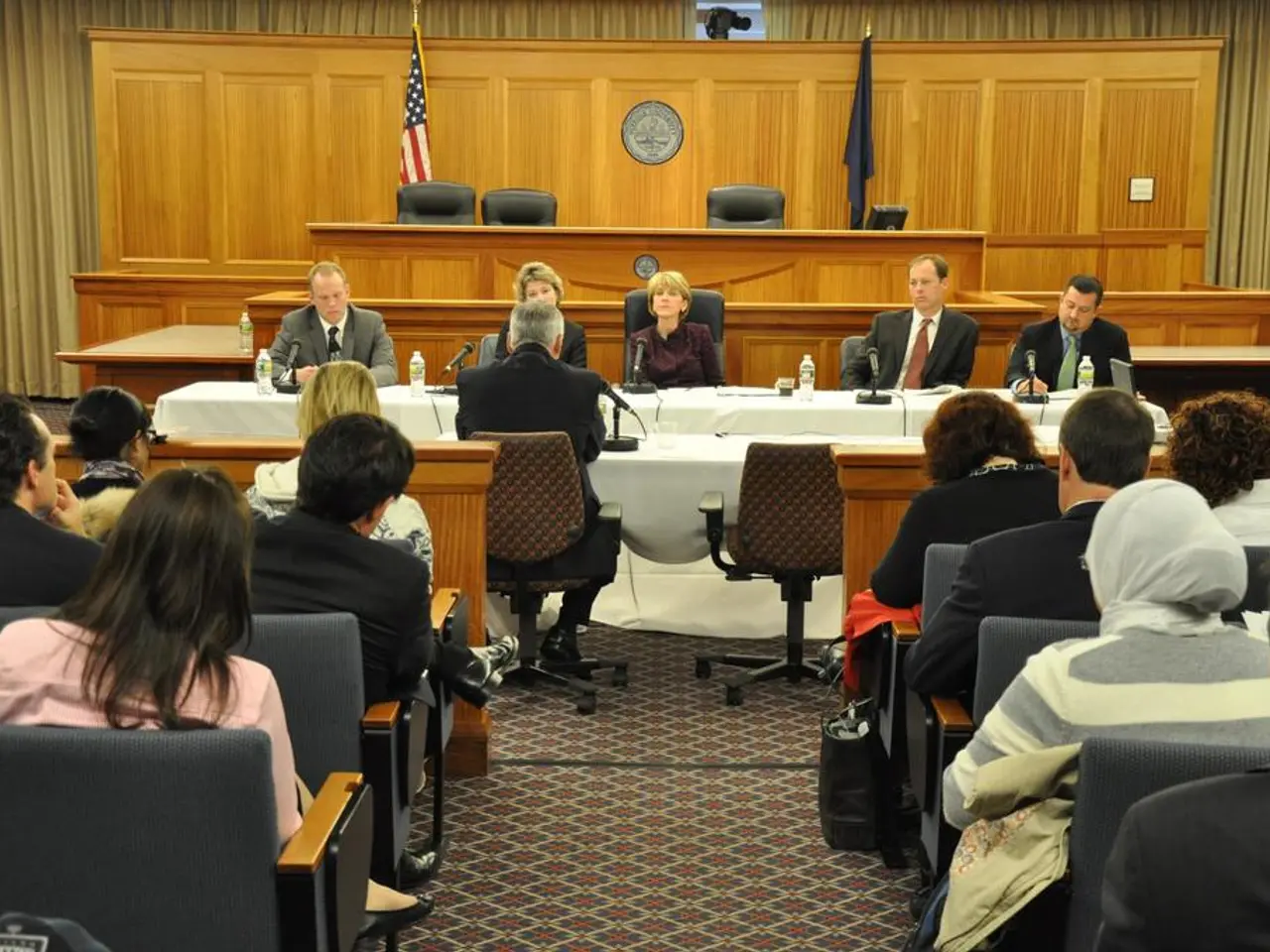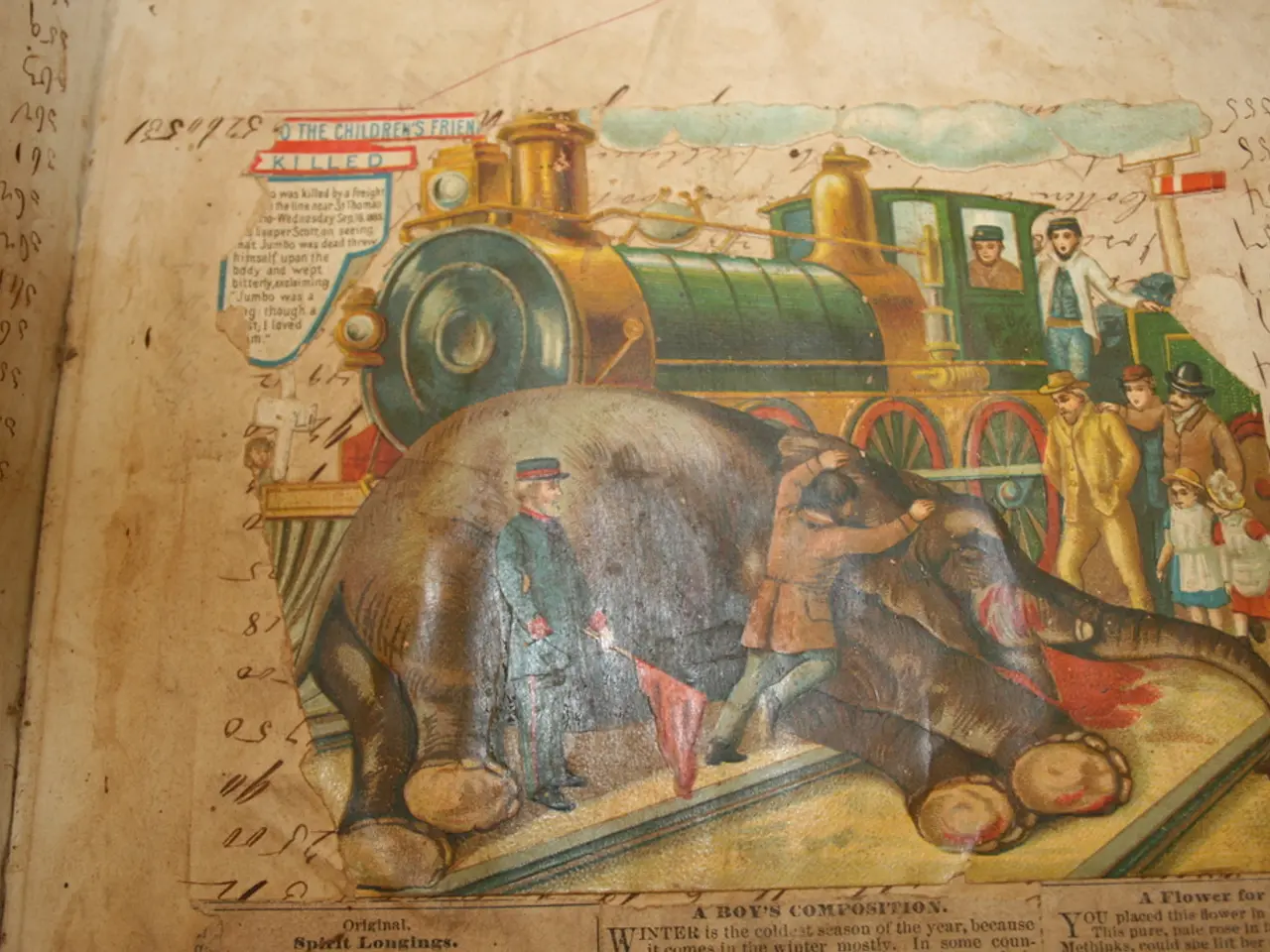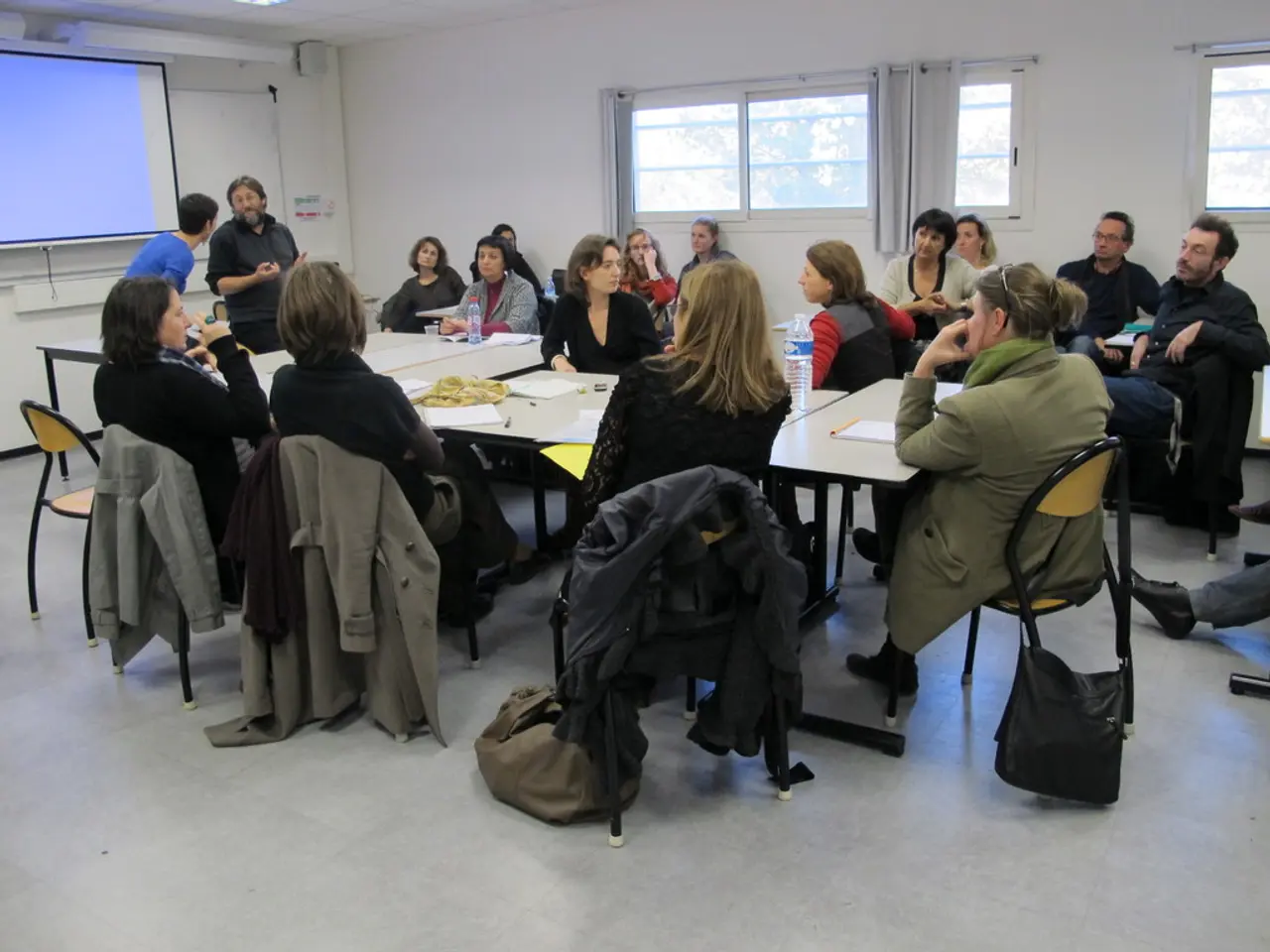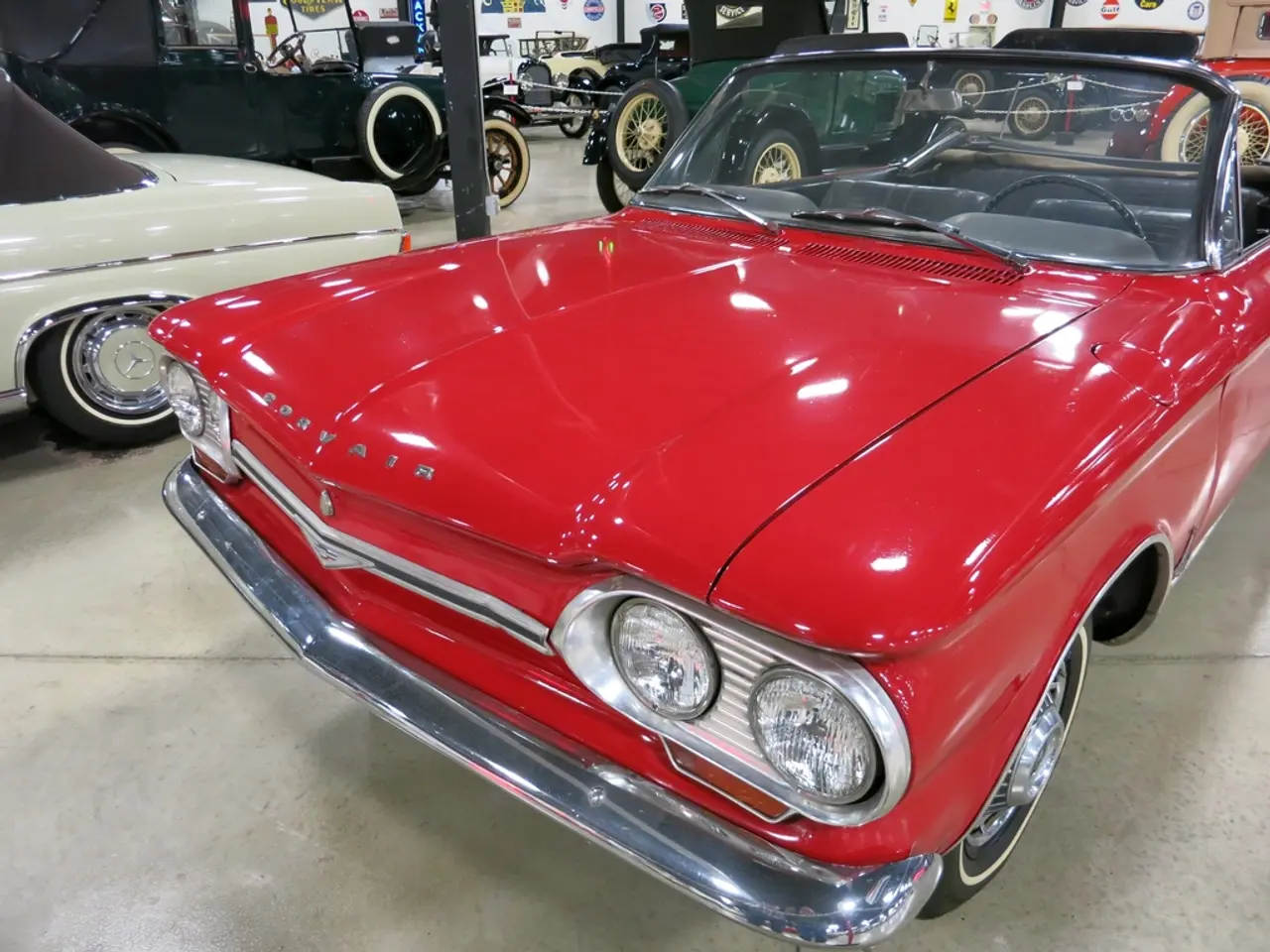Increased bounty offered for capture of Venezuelan president Nicolás Maduro, now worth $50 million dollars.
Venezuelan President Nicolás Maduro is under scrutiny by the US government, who accuse him of being deeply involved in drug trafficking cartels, including the Cartel of the Suns (Cártel de los Soles), Sinaloa Cartel, and Tren de Aragua. These allegations have led to an unprecedented $50 million bounty on Maduro, the highest ever offered for a sitting president.
The US government's claims are supported by several pieces of evidence:
- Sanctions by the US Treasury Department have designated the Cartel of the Suns, led by Maduro and high-ranking Venezuelan officials, as a Specially Designated Global Terrorist organization. The cartel reportedly corrupts Venezuelan institutions, including the military, intelligence, legislature, and judiciary, to facilitate narcotics trafficking into the US.
- US authorities assert that Maduro and his regime have provided material, financial, and logistical support to criminal groups like the Sinaloa Cartel and Tren de Aragua to transport tons of cocaine to North America. The Drug Enforcement Administration (DEA) has seized about 30 tons of cocaine linked to Maduro and his associates, with nearly 7 tons directly tied to him.
- Historical cases of Venezuelan military and intelligence officers arrested for aiding Colombian and Mexican cartels strengthen the evidence that part of the Venezuelan state apparatus has been complicit in drug trafficking. For instance, in 2015, two senior National Guard officers were charged with protecting and facilitating drug shipments to North America.
- Maduro was indicted in a Manhattan federal court in 2020 on multiple charges, including narco-terrorism, conspiracy to import cocaine into the US, and conspiracy to possess firearms and destructive devices.
- The US government has publicly stated that Venezuela has become a "narco-state," wherein Maduro’s regime uses these drug operations as both a source of income and a geopolitical weapon against the US.
The Maduro government disputes these claims as politically motivated propaganda. In the wake of the allegations, Maduro launched a sweeping crackdown on dissent, arresting demonstrators, opposition figures, and foreign nationals. The Venezuelan foreign minister, Yván Gil, criticized the $50m reward offered by the US government as a "ridiculous smokescreen."
Meanwhile, the economic crisis in Venezuela continues, with the bolívar currency losing about 70% of its value against the dollar since October and annual inflation hitting 229% in May. However, there is no mention of any new facts about the economic crisis in Venezuela in the context of these drug trafficking allegations.
In the midst of this ongoing conflict, the US government has granted Chevron a license to produce oil in Venezuela. The US does not recognize Maduro as the president of Venezuela, and the opposition's main candidate, Edmundo González, was recognized as the winner of the July election by Washington and many western allies.
Key organizations and networks involved in these allegations include:
- Cartel of the Suns: Led by Maduro and Venezuelan officials, central to trafficking.
- Sinaloa Cartel: A Mexican cartel collaborating with the Cartel of the Suns.
- Tren de Aragua: A Venezuelan criminal group supported by the Cartel of the Suns.
This framework of cooperation between criminal networks and state officials forms the evidential basis behind the US government's narcotics-related criminal allegations against President Maduro.
The US government's policy-and-legislation response to Maduro's alleged involvement in drug trafficking cartels includes designating the Cartel of the Suns as a Specially Designated Global Terrorist organization, providing a $50 million bounty for Maduro, and indicting him in a Manhattan federal court. The general-news coverage also highlights Maduro's politics, as he disputes these allegations and responses with a crackdown on dissent. War-and-conflicts shift from the traditional battleground to policy-and-legislation, as the US government accuses Maduro of using drug trafficking as a geopolitical weapon.
